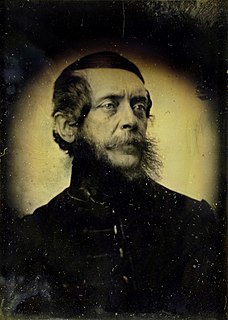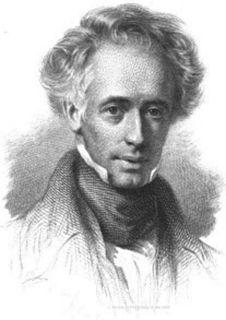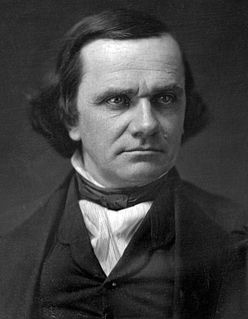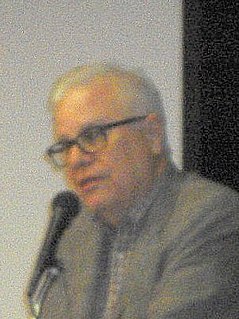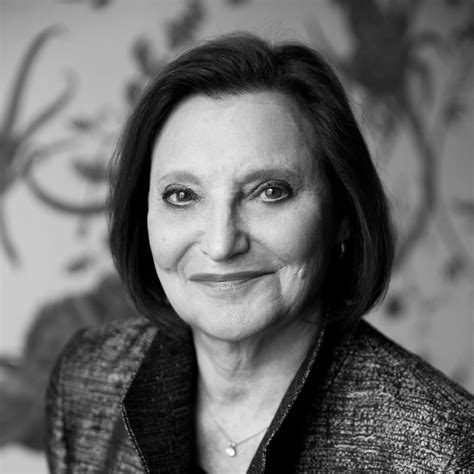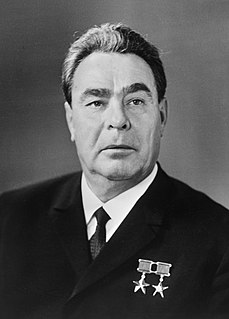Top 1200 Moral Struggle Quotes & Sayings - Page 15
Explore popular Moral Struggle quotes.
Last updated on April 21, 2025.
History is the long struggle of man, by exercise of his reason, to understand his environment and to act upon it. But the modern period has broadened the struggle in a revolutionary way. Man now seeks to understand, and act on, not only his environment, but himself; and this has added, so to speak, a new dimension to reason and a new dimension to history.
[Prudence] is the virtue of that part of the intellect [the calculative] to which it belongs; and . . . our choice of actions will not be right without Prudence any more than without Moral Virtue, since, while Moral Virtue enables us to achieve the end, Prudence makes us adopt the right means to the end.
I would say to anybody who thinks that all the problems in philosophy can be translated into empirically verifiable answers - whether it be a Lawrence Krauss thinking that physics is rendering philosophy obsolete or a Sam Harris thinking that neuroscience is rendering moral philosophy obsolete - that it takes an awful lot of philosophy - philosophy of science in the first case, moral philosophy in the second - even to demonstrate the relevance of these empirical sciences.
The rewrites are a struggle right now. Sometimes I wish writing a book could just be easy for me at last. But when I think about it practically, I am glad it's a struggle. I am (as usual) attempting to write a book that's too hard for me. I'm telling a story I'm not smart enough to tell. The risk of failure is huge. But I prefer it this way. I'm forced to learn, forced to smarten myself up, forced to wrestle. And if it works, then I'll have written something that is better than I am.
It will take a long period to decide the issue in the ideological struggle between socialism and capitalism in our country. The reason is that the influence of the bourgeoisie and of the intellectuals who come from the old society will remain in our country for a long time to come, and so will their class ideology. If this is not sufficiently understood, or is not understood at all, the gravest mistakes will be made and the necessity of waging the struggle in the ideological field will be ignored.
The insistence on truthfulness does not disturb the freedom of the individual. The social obligation implied in Satyagraha turns the freedom of the individual into moral freedom. An atheist is free to say or to do what he likes, provided he does what he says and says what he does. So, in the context of social relations, the freedom of the individual is moral freedom.
What sets Christian spiritual activity apart from all other religions is that they have knowledge of Christ as their goal; not moral perfection (although you will become more moral), not tranquility (although your life will be remarkably more peaceful). And because of the grace you have in Christ, the disciplines will do nothing to make you more accepted by the Father. You cannot be more accepted than you already are in Christ, since He has already done it all for you!
There is a form of poetic and esthetic and moral genius necessary to make philosophical issues truly incandesce for students, and even though I indeed had some world-class professors myself when I went through the curriculum, I rarely saw such gnosic or concretist/poetic passion among them. I am not speaking of broad histrionics or melodramatic delivery, but rather a moral investment of concern, of loving delight and pathos in exposing one's consciousness to the full horrific and magnificent implications of the materials.
Gentlemen, do you know what is the finest speech that I ever in my life heard or read? It is the address of Garibaldi to his Roman soldiers, when he told them: "Soldier, what I have to offer you is fatigue, danger, struggle and death; the chill of the cold night in the free air, and heat under the burning sun; no lodgings, no munitions, no provisions, but forced marches, dangerous watchposts and the continual struggle with the bayonet against batteries;- - those who love freedom and their country may follow me." That is the most glorious speech I ever heard in my life.
Without armed struggle neither the proletariat, nor the people, nor the Communist Party would have any standing at all in China and it would be impossible for the revolution to triumph. In these years [the eighteen years since the founding of the Party] the development, consolidation and bolshevization of our Party have proceeded in the midst of revolutionary wars; without armed struggle the Communist Party would assuredly not be what it is today. Comrades throughout the Party must never forget this experience for which we have paid in blood.
Totalitarian regimes produce a culture and a moral code that is totally different from what happens in a democracy. There are two moral categories in a communist society: honest men and bad men. The "honest" ones resist compromising or collaborating with the regime, while the "bad" are the persecutors and collaborators. You can choose to be on one side or the other, but there is nothing in between. In a normal society, other factors can define who you are. You can be a good worker, sociable, tough, generous, tolerant, collaborative, friendly.
Really great moral teachers never do introduce new moralities: it is quacks and cranks who do that.... The real job of every moral teacher is to keep on bringing us back, time after time, to the old simple principles which we are all so anxious not to see; like bringing a horse back and back to the fence it has refused to jump or bringing a child back and back to the bit in its lesson that it wants to shirk.
When you struggle against this moment, you're actually struggling against the entire universe. Instead, you can make the decision that today you will not struggle against the whole universe by struggling against this moment. This means that your acceptance of this moment is total and complete. You accept things as they are, not as you wish they were in this moment. This is important to understand. You can wish for things in the future to be different, but in this moment you have to accept things as they are.
The struggle between God and man breaks out in everyone, together with the longing for reconciliation. Most often this struggle is unconscious and short-lived. A weak soul does not have the endurance to resist the flesh for very long. It grows heavy, becomes flesh itself, and the contest ends. But among responsible men, men who keep their eyes riveted day and night upon the Supreme Duty, the conflict between flesh and spirit breaks out mercilessly and may last until death.
Art itself is essentially ethical; because every true work of art must have a beauty or grandeur of some kind, and beauty and grandeur cannot be comprehended by the beholder except through the moral sentiment. The eye is only a witness; it is not a judge. The mind judges what the eye reports to it; therefore, whatever elevates the moral sentiment to the contemplation of beauty and grandeur is in itself ethical.
The very idea of freedom presupposes some objective moral law which overarches rulers and ruled alike. Subjectivism about moral values is eternally incompatible with democracy. We and our rulers are of one kind only so long as we are subject to one law. But if there is no Law of Nature, the ethos of any society is the creation of its rulers, educators and conditioners; and every creator stands above and outside his own creation.
Since my moral system rests on my accepted version of the facts, he who denies my moral judgments or my version of the facts, is to me perverse, alien, dangerous. How shall I account for him? The opponent has always to be explained, and the last explanation that we ever look for is that he sees a different set of facts. Such an explanation we avoid, because it saps the very foundation of our own assurance that we have seen life steadily and seen it whole.
We live in a world full of accidents finally in which on aesthetic principles have a consistency of which we can be sure. Right and wrong we will struggle with forever striving to create and maintain an ethical balance. Right and wrong we will struggle with forever, striving to create and maintain an ethical balance; but the shimmer of summer rain under the street lamps or the great flashing glare of artillery against a night sky – such brutal beauty is beyond dispute.
The desire for guidance, love, and support prompts men to form the social or moral conception of God. This is the God of Providence, who protects, disposes, rewards, and punishes; the God who, according to the limits of the believer's outlook, loves and cherishes the life of the tribe or of the human race, or even of life itself; the comforter in sorrow and unsatisfied longing; he who preserves the souls of the dead. This is the social or moral conception of God.
While some animals exhibit individual powers in higher perfection, man stands for their superior, not only in combining in his own body all the senses and faculties which they possess, but in being endowed with moral and intellectual powers which are denied to them, and which at once place him at the head of the living creation, and constitute him a moral, religious, intelligent, and responsible being.
Lastly, our ancestors established their system of government on morality and religious sentiment. Moral habits, they believed, cannot safely be trusted on any other foundation than religious principle, nor any government be secure which is not supported by moral habits.... Whatever makes men good Christians, makes them good citizens.
Man, no doubt, owes many other moral duties to his fellow men; such as to feed the hungry, clothe the naked, shelter the homeless, care for the sick, protect the defenseless, assist the weak, and enlighten the ignorant. But these are simply moral duties, of which each man must be his own judge, in each particular case, as to whether, and how, and how far, he can, or will perform them.
There is a moral virtue, a moral fidelity, ability and honesty, which other men, besides church members, are, by good nature and education, by good laws and good examples nourished and trained up in; so that civil places and trust and credit need not be monopolized into the hands of church members (who sometimes are not fitted for public office), while all others are deprived and despoiled of their natural and civil rights and liberties.
The moral justification of capitalism does not lie in the altruist claim that it represents the best way to achieve 'the common good.' It is true that capitalism does -- if that catch-phrase has any meaning -- but this is merely a secondary consequence. The moral justification for capitalism lies in the fact that it is the only system consonant with man's rational nature, that it protects man's survival qua man, and that its ruling principle is: justice
Those who believe they have pleased God by the quality of their devotion and moral goodness naturally feel that they and their group deserve deference and power over others. The God of Jesus and the prophets, however, saves completely by grace. He cannot be manipulated by religious and moral performance--he can only be reached through repentance, through the giving up of power. If we are saved by sheer grace we can only become grateful, willing servants of God and of everyone around us.
All human beings are moral beings. So, certainly there are alliances. We are in the countries, that are secular states, and we obey its laws. I think we must recognize that common moral base. But in alliances we must always be careful just of what level the alliance is perceived. I will go and lecture to an atheist society, for example, but I will not lecture for them, because I am not an atheist. You see the difference.
The concept of absolute, hence (or whence) springs, in the moral field, the moral laws or norms, represent, in the field of knowledge, the principle of identity, which is the fundamental law of the thought; norms of logic springs from it, that govern the thought (or mind) in the field of science." ("Le concept de l'absolu, d'où découlent, dans le domaine moral, les lois ou normes morales, constitue, le principe d'identité, qui est la loi fondamentale de la pensée; il en découle les normes logiques qui régissent la pensée dans le domaine de la science.")
I am now speaking of rights under the Constitution, and not of moral or religious rights. I do not discuss the morals of the people of Missouri, but let them settle that matter for themselves. I hold that the people of the slaveholding States are civilized men as well as ourselves, that they bear consciences as well as we, and that they are accountable to God and their posterity and not to us. It is for them to decide therefore the moral and religious right of the slavery question for themselves within their own limits.
... For all our alarm, it is clear that the religious right is responding to a real hunger in our society... a deep-seated yearning for stable values... When conservative Christian groups talk of failures in our educational system, the erosion of our moral standards, and the waste of young lives, they are addressing real and legitimate concerns... Among secularists, the aversion toward discussion of moral values, let alone religion, can reach absurd extremes.
The moral authority in the Western world is gone. And it is gone forever. It is gone, not because of the criminal record--everybody's record is criminal. It is gone because you cannot do one thing and pretend you're doing another! None of us, who are sitting around in some of the true limbo out-of-space, which we call "now," waiting to be saved, civilized, or discovered, have the moral authority to say anything.
In the greatest fiction, the writer's moral sense coincides with his dramatic sense, and I see no way for it to do this unless his moral judgement is part of the very act of seeing, and he is free to use it. I have heard it said that belief in Christian dogma is a hindrance to the writer, but I myself have found nothing further from the truth. Actually, it frees the storyteller to observe. It is not a set of rules which fixes what he sees in the world. It affects his writing primarily by guaranteeing his respect for mystery.
Increasingly I felt as if I were entering a struggle that might even be more than life and death. It might be a struggle for my soul, my essence, or whatever part of me might have reference to the eternal. There are worse things than death, I suspected... so far the word demon had never been spoken among the scientists and doctors who were working with me...Alone at night I worried about the legendary cunning of demons ...At the very least I was going stark, raving mad.
The more you understand what you're dealing with, the stronger you get. People see fear as a bad thing. Fear is healthy when you're dealing with Amerika. But when fear controls you, when you're afraid to struggle fear is a bad thing. I'm more afraid of what will happen if I don't struggle, than what will happen if I do
I haven't figured out how to do anything yet besides recording music - I don't even entirely know how to do that. My favorite phrase is "It takes a lot of imagination to have no talent." So it's a struggle because I struggle between thinking about whether or not I'm actually a musician, am I actually an artist. Does it matter what I'm doing? Should I just go and jump off a bridge? Thinking about the social hierarchy and the fact that I'm American, and how I don't identify with being American, nor do I identify with any nationality or my race.
The most interesting acquaintanceship I have struck up here is that of Colonel Lapinski. He is without doubt the cleverest Pole - besides being an homme d'action [man of action] - that I have ever met. His sympathies are all on the German side, though in manners and speech he is also a Frenchman. He cares nothing for the struggle of nationalities and only knows the racial struggle. He hates all Orientals, among whom he numbers Russians Turks, Greeks, Armenians, etc., with equal impartiality.... His aim now is to raise a German legion in London.
Conservatives say the government can't end poverty by force, but they believe it can use force to make people moral. Liberals say government can't make people be moral, but they believe it can end poverty. Neither group attempts to explain why government is so clumsy and destructive in one area but a paragon of efficiency and benevolence in the other.
The hardest part of being a Christian is surrendering and that is where the real struggle happens. Once we have overcome our own desire to be elevated, our own desire to be recognized, our own desire to be independent and all those things that we value very much because we are Americans and we are part of this American culture. Once we have overcome that struggle then God can use us as a part of His body to accomplish what the body of Christ was left here to accomplish.
Animals struggle with each other for food or for leadership, but they do not, like human beings, struggle with each other for thatthat stands for food or leadership: such things as our paper symbols of wealth (money, bonds, titles), badges of rank to wear on our clothes, or low-number license plates, supposed by some people to stand for social precedence. For animals the relationship in which one thing stands for something else does not appear to exist except in very rudimentary form.
I think I would rather live on the verge of falling and let my security be in the all-sufficiency of the grace of God than to live in some pietistic illusion of moral excellence. Not that I don't want to be morally excellent but my faith isn't in the idea that I'm more moral than anybody else. My faith is in the idea that God and His love are greater than whatever sins any of us commit.
Market forces have no intrinsically moral direction, which is why, before he wrote The Wealth of Nations, Adam Smith wrote The Theory of Moral Sentiments. Ethics should precede economics. But it doesn't have to. . . . We know this because we've seen the results of capitalism without conscience: the pollution of the air we breathe, the water we drink, and the food we eat; the endangerment of workers; and the sale of dangerous products - from cars to toys to drugs. All in pursuit of ever-greater profits.
To those who are gay, lesbian, bisexual,or transgender-let me say- you are not alone. You're struggle, for the end to violence and discrimination, is a shared struggle. Today, I stand with you. And I call upon all countries and people, to stand with you too.A historic shift is underway. We must tackle the violence, decriminalize consensual same sex relationships and end discrimination. We must educate the public. I call on this council and people of conscience to make this happen.The time has come.
For nearly a century, the moral relativism of science has given faith-based religion--that great engine of ignorance and bigotry--a nearly uncontested claim to being the only universal framework for moral wisdom. As a result, the most powerful societies on early spend their time debating issues like gay marriage when they should be focused on problems like nuclear proliferation, genocide, energy security, climate change, poverty, and failing schools.
We do literature a real disservice if we reduce it to knowledge or to use, to a problem to be solved. If literature solves problems, it does so by its own inexhaustibility, and by its ultimate refusal to be applied or used, even for moral good. This refusal, indeed, is literature's most moral act. At a time when meanings are manifold, disparate, and always changing, the rich possibility of interpretation--the happy resistance of the text to ever be fully known and mastered--is one of the most exhilarating products of human culture.
Environmental history was . . . born out of a moral purpose, with strong political commitments behind it, but also became, as it matured, a scholarly enterprise that had neither any simple, nor any single, moral or political agenda to promote. Its principal goal became one of deepening our understanding of how humans have been affected by their natural environment through time and, conversely, how they have affected that environment and with what results.
People who think of themselves as tough-minded and realistic, among them influential political leaders and businessmen as well as go-getters and hustlers of smaller caliber, tend to take it for granted that human nature is selfish and that life is a struggle in which only the fittest may survive. According to this philosophy, the basic law by which man must live, in spite of his surface veneer of civilization, is the law of the jungle. The "fittest" are those who can bring to the struggle superior force, superior cunning, and superior ruthlessness.
It was necessary to put the South at a moral disadvantage by transforming the contest from a war waged against states fighting for their indepdence into a war waged against states fighting for the maintenance and extension of slavery...and the world, it might be hoped, would see it as a moral war, not a political; and the sympathy of nations would begin to run for the North, not for the South.
Maybe the growth of "God" signifies the existence of God. That is: if history naturally pushes people toward moral improvement, toward moral growth, and their God, as they conceive their God, grows accordingly, becoming morally richer, then maybe this growth is evidence of some higher purpose, and maybe - conceivably - the source of that purpose is worthy of the name divinity.
Consumerism is, quite precisely, the consuming of life by the things consumed. It is living in a manner that is measured by having rather than being... and consumerism is hardly the sin of the rich. The poor, driven by discontent and envy, may be as consumed by what they do not have as the rich are consumed by what they do have. The question is not, certainly not most importantly, a question about economics. It is first and foremost a cultural and moral problem requiring a cultural and moral remedy.
When I was doing Shakespeare and I had spent a lot of time and effort in trying to become a great Shakespearean actress. That was how I started my career, was in the theater doing Shakespeare. And my ambition was to be a great classical actress. That was what I wanted more than anything. So, I really pursued that in the first four years of my career. And it was an uphill struggle. It really was. Shakespeare's difficult and Shakespeare in a big theater is even more difficult. So, anyway, it was a struggle for me.
What is the good of your stars and trees, your sunrise and the wind, if they do not enter into our daily lives? They have never entered into mine, but into yours, we thought--Haven't we all to struggle against life's daily greyness, against pettiness, against mechanical cheerfulness, against suspicion? I struggle by remembering my friends; others I have known by remembering some place--some beloved place or tree--we thought you one of these.
Their usual mistaken premise is that they affirm some consensus among people, at least among tame peoples, concerning certain moral principles, and then conclude that these principles must be unconditionally binding also for you and me-or conversely, they see that among different peoples moral valuations are necessarily different and infer from this that no morality is binding-both of which are equally childish.
We Communists must be able to integrate ourselves with the masses in all things. If our Party members spend their whole lives sitting indoors and never go out to face the world and brave the storm, what good will they be to the Chinese people? None at all, and we do not need such people as Party members. We Communists ought to face the world and brave the storm the great world of mass struggle and the mighty storm of mass struggle.
Communists have always viewed the national question through the prism of the class struggle, believing that its solution has to be subordinated to the interests of the Revolution, to the interests of socialism. That is why Communists and all fighters for socialism believe that the main aspect of the national question is unification of the working people, regardless of their national origin, in the common struggle against every type of oppression, and for a new social system which rules out exploitation of the working people.
... when you make it a moral necessity for the young to dabble in all the subjects that the books on the top shelf are written about, you kill two very large birds with one stone: you satisfy precious curiosities, and you make them believe that they know as much about life as people who really know something. If college boys are solemnly advised to listen to lectures on prostitution, they will listen; and who is to blame if some time, in a less moral moment, they profit by their information?











